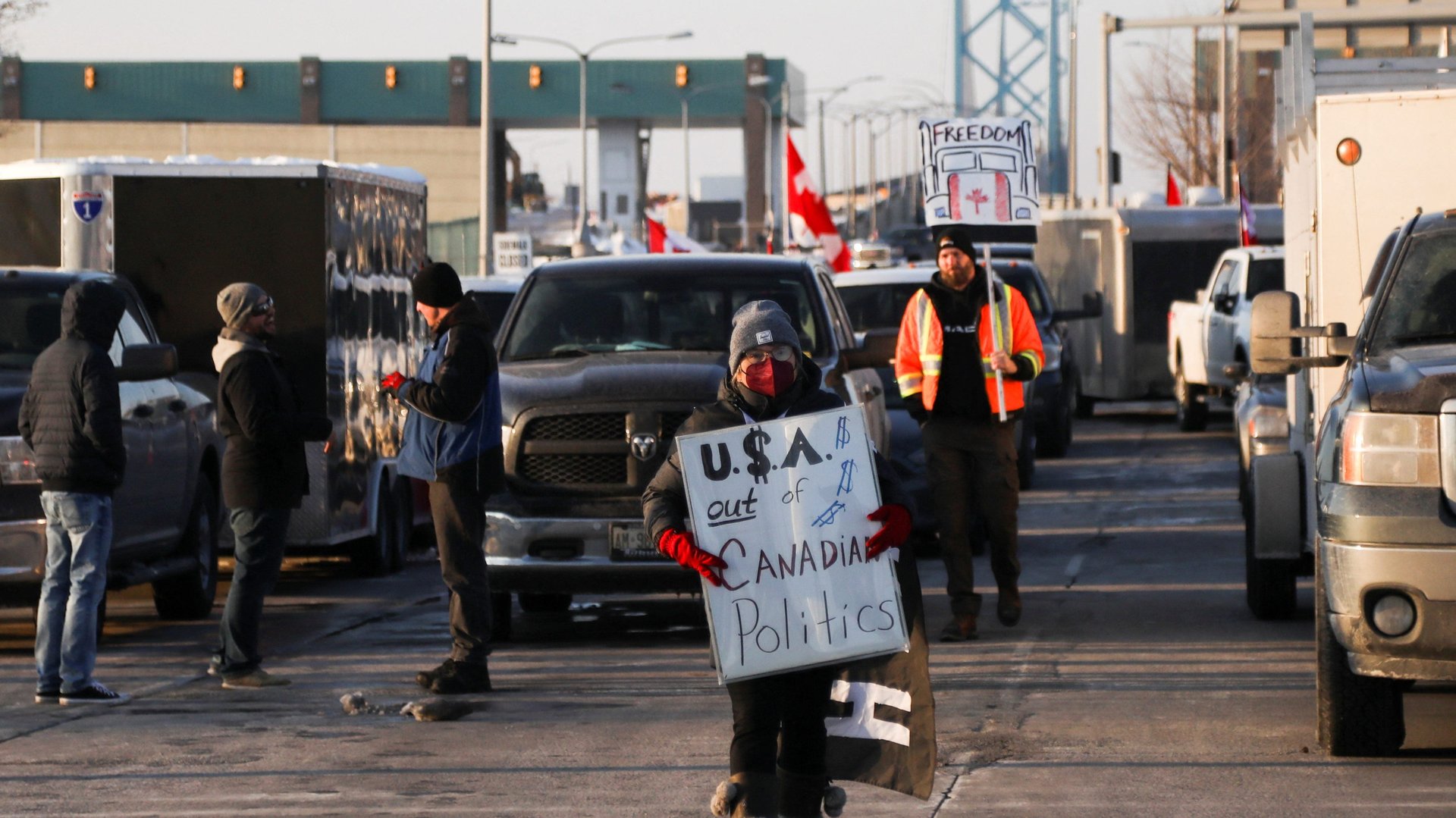Canadian truckers blocked the world’s biggest auto makers
Police in Canada cleared protesters from the Ambassador Bridge late last night (Feb. 13), with multiple arrests.


Police in Canada cleared protesters from the Ambassador Bridge late last night (Feb. 13), with multiple arrests.
Since Monday (Feb. 7), “freedom convoy” protestors, largely truckers who are against covid mandates and have converged on Ottawa, had shut inbound Canada traffic at the Ambassador Bridge—a key supply route for automakers connecting Detroit to Windsor, Ontario. On Feb. 10, The Biden administration urged Canada to use federal powers to end the blockade.
Diverting traffic is not entirely feasible: Starting late on Tuesday (Feb. 8), another border crossing in Alberta province has been closed in both directions. The Blue Water Bridge, connecting Sarnia, Ontario, to Port Huron, Michigan, is also reporting delays of at least four and a half hours.
At a time when the auto industry’s supply chain is already hanging by a thread due to a global semiconductor crunch, these disruptions have hit major vehicle production plans:
- Stellantis “had to short shift its first shift due to parts shortages” at the Chrysler Pacifica minivan plant in Windsor because of a lack of parts.
- Combined with severe weather, trucker-led disruptions forced the world’s largest automaker, Toyota, to suspend production at its Ontario site for the rest of the week.
- Ford had to operate “at a reduced schedule” in Oakville, Ontario, as well as shut its Windsor plant down.
- General Motors temporarily cut the second shift at its Lansing, Michigan plant, where it produces SUVS for the Buick, Chevrolet, and GMC brands
These routes are trade lifelines. More than two-thirds of the $511 billion worth of goods that move across the US-Canada border are ferried by road. A quarter of the goods traded between the two countries move across the Ambassador Bridge alone. More than 7,000 trucks cross the Detroit-Windsor border via this bridge daily. Agricultural exports also depend on this movement of vehicles.
“I think it’s important for everyone in Canada and the United States to understand what the impact of this blockage is—potential impact—on workers, on the supply chain, and that is where we’re most focused,” White House spokesperson Jen Psaki said on Feb. 9.
Businesses stand to lose $50 million a day. If the protests get out of hand, layoffs could also be on the table.
This piece has been updated.